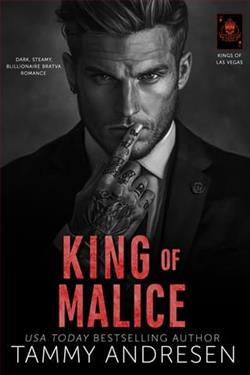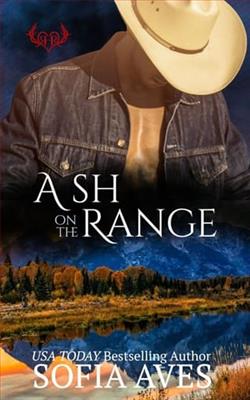Page 24 of The Road to Avalon
We set offon the long road home two days later, with no more mention of any kind of betrothal between Seleu and Archfedd. She remained blissfully ignorant of the hand fate could have played her, and I wisely didn’t bring up the subject with Arthur. Hopefully, he’d seen the error of his ways when sober, and after the fiasco at the coronation. I didn’t even ask him if Seleu had brought it up again and had to be rebuffed. Best not to know.
It was a party incongruously lighthearted with the relief of leaving Caer Dore and its grisly memories that set out northward on a fine summer morning. But we were not going straight home. We would be visiting Cei and Arthur’s mother, the Lady Eigr, in her stronghold of Din Tagel.
Lucky me.
Strictly speaking, it wasn’t hers, but Cei’s. However, as he chose to spend his time with his brother at Din Cadan, she ruled in his absence. He visited her a couple of times a year, ostensibly to check up on her stewardship and visit some of the local mines and farms, although he’d told me in confidence that she was a better steward than he could ever have been a ruler.
Since that time when Arthur, after the death of his father, had visited her for the first time since his childhood, he’d been back with Cei only a couple of times. He always made out it was against his will, although I suspected that might have been untrue. I’d never accompanied him after that first visit, and been happy not to.
This visit was Cei’s idea. “I haven’t seen my mother since last autumn,” he reasoned, as we three rode side by side following a narrow sheep track across the windy moor. “She’s not getting any younger, and I can’t help feeling it’s time I took more of an interest in what goes on there.”
Arthur, who had never forgiven his mother for abandoning him as a child, only grunted.
“And as we’re so close, it seems only sensible to visit.” Cei grinned across at Archfedd. “And I’m sure she’ll be pleased to meet one of her granddaughters.” He winked. “I’ve told her all about you and Reaghan. Amhar too.”
“And I’d like to meether,” Archfedd said, with a small frown. “I just wish Amhar had come too. I’m sure my Lady Grandmother would be more pleased to see him than me.” She chuckled. “HeisFather’s heir, after all.”
I frowned at the natural assumption she’d made that her brother would hold more importance in her grandmother’s eyes than she did. “She’ll be pleased to see you. I’m certain.”
No such thing as girl power in the Dark Ages. Well, not much of it, anyway. I’d made sure Archfedd hadn’t grown up educated only to be a wife. She could read and write in fluent Latin and fight as well as any boy her age. She’d have made a better queen than Amhar would a king. But all of that might be swept away unnoticed when she married. No husband was going to like a wife cleverer than him, nor one who could best him in a sword fight.
I heaved a sigh of resignation. I could fight against the way women were treated forever, but I’d never win. Gone were the days of Boudicca leading her people into battle. And even she had been someone’s wife before she’d become a war leader.
The twenty-odd miles between Caer Dore and Din Tagel’s rocky promontory on the north coast of Cornubia took all day to negotiate. The tracks we had to use mostly linked farms and hamlets, and weren’t meant for navigating long distances. They skirted lowland boggy areas, twisted through forests and around the higher ground, and often were too rock strewn and uneven to take at more than a walk without risk of a horse breaking a leg.
Eventually, Archfedd stood in her stirrups and pointed ahead of us. “What’s that? Look, there where the land dips. Look at the horizon. The land’s just sort of stopped.” Her voice rose in excitement.
Of course. She’d never seen the sea up close. It had been barely visible from Caer Dore and we’d not had time to go and take a better look.
As we rode down the rocky defile toward the gates of Din Tagel, and the wide expanse of the ocean opened up in front of her, Archfedd’s eyes grew rounder and rounder.
She bubbled with questions. “What’s that smell? And that noise? This is the sea? Where Medraut’s father has his ships? It’s so huge! Where does it go? To the edge of the world?”
Her enthusiasm proved infectious, and the mood of depression that had settled on me the nearer we came to Eigr’s lair lifted a little as I tried to answer her questions. “You can smell the seaweed on the beach, and the sea has a special smell all of its own. The noise is the waves breaking on the pebbly beach and against the cliffs. And Theodoric’s ships are a long way off, not on this bit of sea– it’s around the edge of our whole island. You’ve seen my maps. And thereisno edge of the world– it’s a globe, like an apple, and we’re on one tiny bit of it.”
This last she scoffed at, and I didn’t press. Let her cope with trying to appreciate our coastline up close for the first time in her life.
The fortress of Din Tagel clung to a rocky promontory that jutted into the sea above towering cliffs. Waves crashed incessantly at its feet, and all the defense the inhabitants needed was a single curtain wall running across the narrow neck of land. The cliffs provided the rest. Down below the fortress, a tiny harbor sheltered a shingle beach, where sometimes tradesmen from far away beached their small merchant ships to unload their cargo. Other, larger vessels, had to dock at high tide against the precarious rocky landing stage on the island’s northeastern side. Right now, both beach and landing stage lay empty.
Guards flung open the stout gates, and we rode through to the long, low stable block where it hunched, stuck to the headland like a limpet on a rock, as though it feared the fierce prevailing wind might prise it off and blow it away.
Cei surveyed the building with a critical eye. “That thatch is in need of patching,” he said. “The winter storms have damaged it. I’ll have to speak with my mother about that.”
Eigr. Not a woman with whom I was particularly keen to renew my acquaintance. We hadn’t parted as enemies, but neither had we as friends. People who’d agreed to tolerate one another, perhaps. And then, there’d been her scrying glass… No wonder I’d not been back.
Darkness had fallen by the time we’d dealt with our horses. Was Arthur as reluctant to approach Eigr’s hall, perched halfway up the rocky slope, as I was?
Beyond the looming bulk of the headland, the sea spread out, luminous and pale, white-capped and never still. Impossible to see if the hall also needed attention on its roof. Cei pushed open the door, and we passed inside– him, Arthur, me, Archfedd and Merlin. The rest of our men had gone to the barracks to find beds for the night.
A fire smoldered in the central hearth, the smell of smoke and bitter soot strong, and around it a pile of sleepy hounds raised their heads to look at us. Not much good as guard dogs, they lowered their heads again as though we didn’t interest them. Maybe they knew Cei’s scent.
An old woman was stirring a cauldron that sat in the hot embers, and the savory aroma of cooking meat and onions mingled with the smell of dogs and smoke and dusty reeds. She straightened up with difficulty and made an awkward bow, her face lined with the pain of rheumaticky joints. “Milord Cei, Milord Arthur. I’ll tell yer mother yer here.” She hobbled to the door into Eigr’s chamber and disappeared through it.
We waited. Cei went to the cauldron and lifted the spoon to sniff the contents. My stomach, having long forgotten our midday meal of bread and cheese, rumbled as he tasted the stew.
He grinned. “Good stuff and plenty of it.”
The door of Eigr’s chamber opened. A woman emerged and stopped on the threshold, staring at us, her eyes, once the blue of the summer sky but faded now, moving to each of us in turn. Tall, and thinner than I remembered, she leaned her weight heavily on a gnarled stick, the hand that held it equally as gnarled.















